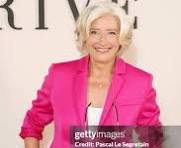Your Friends and Neighbors
By Tandy Culpepper and Lisa Johnson Mandell
Apple TV+’s limited series Your Friends and Neighbors delivers a sleek, morally fractious descent into the lives of the ultra-wealthy, anchored by one of Jon Hamm’s most compelling performances since Mad Men. Hamm plays Andrew “Coop” Cooper, a hedge-fund titan whose carefully constructed life collapses after a divorce, job loss, and the discovery of his ex-wife’s affair with his best friend. Desperate and disgraced, Coop embarks on a series of burglaries targeting the very social circle that once defined him
Jon Hamm’s portrayal is magnetic — he seamlessly balances arrogance, vulnerability, and dark humor, evolving Coop from entitled financier to wounded predator with quiet dignity His internal monologues crackle with sardonic wit, even as they hint at aching introspection. Amanda Peet as Mel Cooper, Olivia Munn as sensual neighbour Sam, and Aimee Carrero as Elena (Coop’s heist accomplice) round out a cast that’s as polished as it is morally compromised.
Visually sumptuous and tonally rich, the series plays like Breaking Bad meets Big Little Lies — a dark caper buried within a glossy critique of privilege. The production is unapologetically lavish, flaunting multi-million‑dollar watches, designer bonds, and millionaire mansions — a deliberate choice that amplifies the show’s biting commentary on consumerism. Yet this glamor creates tension: the more Coop steals, the more we question whether it’s condemnation — or envy — we’re responding to.
Creator Jonathan Tropper weaves a slow-burn narrative that blends satire, suspense, and social critique. Though the pacing occasionally lags — some dialogue and character arcs don’t land as sharply — the overarching emotional trajectory remains engaging. Parts of it “stale” and “too familiar,” though others felt the satire still packs a punch.
At its core, the series is an exploration of emptiness — what happens when ambition and accumulation fail to fill the soul. Coop’s crimes force him into uncomfortable self-awareness: he targeted his neighbors because he once was them . This internal paradox—hungry to expose wealth’s absurdity yet indulging in it—is the engine that drives the show’s existential depth.
Your Friends and Neighbors doesn’t dramatically reinvent the “rich‑people‑are-awful” genre, but it delivers enough style, substance, and star power to keep viewers hooked. Jon Hamm is extraordinary — blending regret, charm, and raw desperation — and the series’s moral ambiguity makes it more than just another wealthy‑elite takedown. Fans of character-driven, darkly satirical dramas will find plenty to savor. A second season is already in development, suggesting this story has more to say.
************************************************************************
TV Review: The Day of the Jackal — Eddie Redmayne Elevates a Chilling Reimagining
In Peacock’s high-stakes political thriller The Day of the Jackal, Eddie Redmayne transforms a classic assassin into a modern phantom—charismatic, enigmatic, and unnervingly precise. This stylish reimagining of Frederick Forsyth’s 1971 novel (and the iconic 1973 film adaptation) trades Cold War tensions for today’s volatile political landscape, proving that the themes of extremism, surveillance, and state power remain just as urgent—and perhaps more terrifying—half a century later.
Redmayne, known for his physically detailed performances and intense screen presence, takes a bold swing in portraying the titular Jackal, a hired killer contracted to carry out a high-profile assassination in a fractured and paranoid Europe. But unlike the emotionless cipher of previous incarnations, Redmayne’s Jackal is chillingly self-aware, even seductive. He’s less a ghost and more a chameleon—part performance artist, part political opportunist, and entirely untraceable.
Directed by Brian Kirk (Luther, Game of Thrones), the series unfolds as a slow-burn cat-and-mouse chase between the Jackal and a determined MI6 agent played with steely resolve by Lashana Lynch (No Time to Die). Their escalating psychological duel drives the narrative, with Lynch’s character balancing bureaucratic roadblocks, shifting alliances, and her own dark past as she hunts a killer who always seems one step ahead.
The show’s writing, from showrunner Ronan Bennett (Top Boy), updates Forsyth’s meticulous procedural tone with a modern rhythm, infusing the dialogue with moral ambiguity and bureaucratic satire. Government agencies are no longer sleek, omnipotent machines but over-leveraged institutions compromised by infighting and politics. The Jackal exploits those cracks, and so does the show.
Visually, The Day of the Jackal is glossy and cinematic, with globe-trotting locations from London to Istanbul rendered in a washed-out palette that evokes both beauty and dread. The score pulses with understated menace, and the direction favors wide, observational shots, emphasizing the Jackal’s omnipresence and our inability to fully see him—until it’s too late.
At its core, this isn’t just a thriller about an assassination attempt. It’s a meditation on systems of control and the invisible forces that manipulate geopolitics. Redmayne’s Jackal isn’t merely a man—he’s an idea, the embodiment of how vulnerable even the most secure governments can be to individuals who know how to work in the shadows.
Bottom Line: The Day of the Jackal may not reinvent the wheel, but it spins it with precision and purpose. Anchored by a magnetic, icy performance from Eddie Redmayne and a taut, contemporary script, it’s a slow-burning thriller with just enough depth to leave a mark. Watch it for the suspense, stay for the questions it raises about who holds the real power—and who can take it away with a single bullet. Would we like to see a second season? Hell, yes!





One thought on “Lisa Johnson Mandell & Tandy Culpepper Review Your Friends and Neighbors As Well As The Day of the Jackal”